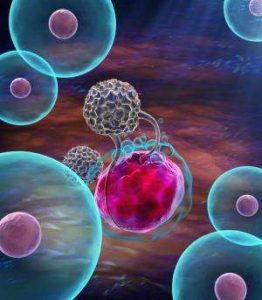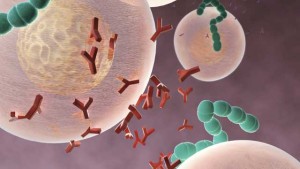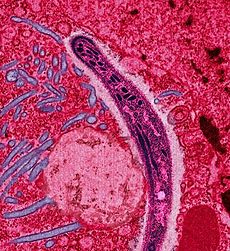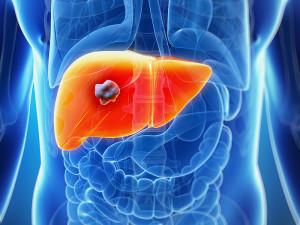Predicting responses to immunotherapy
Colon cancers with loss-of-function mutations in the mismatch repair (MMR) pathway have favorable responses to PD-1 blockade immunotherapy. In a phase 2 clinical trial, Le et al. showed that treatment success is not just limited to colon cancer (see the Perspective by Goswami and Sharma). They found that a wide range of different cancer types with MMR deficiency also responded to PD-1 blockade. The trial included some patients with pancreatic cancer, which is one of the deadliest forms of cancer. The clinical trial is still ongoing, and around 20% of patients have so far achieved a complete response. MMR deficiency appears to be a biomarker for predicting successful treatment outcomes for several solid tumors and indicates a new therapeutic option for patients harboring MMR-deficient cancers.
Abstract
The genomes of cancers deficient in mismatch repair contain exceptionally high numbers of somatic mutations. In a proof-of-concept study, we previously showed that colorectal cancers with mismatch repair deficiency were sensitive to immune checkpoint blockade with antibodies to programmed death receptor–1 (PD-1). We have now expanded this study to evaluate the efficacy of PD-1 blockade in patients with advanced mismatch repair–deficient cancers across 12 different tumor types. Objective radiographic responses were observed in 53% of patients, and complete responses were achieved in 21% of patients. Responses were durable, with median progression-free survival and overall survival still not reached. Functional analysis in a responding patient demonstrated rapid in vivo expansion of neoantigen-specific T cell clones that were reactive to mutant neopeptides found in the tumor. These data support the hypothesis that the large proportion of mutant neoantigens in mismatch repair–deficient cancers make them sensitive to immune checkpoint blockade, regardless of the cancers’ tissue of origin.







